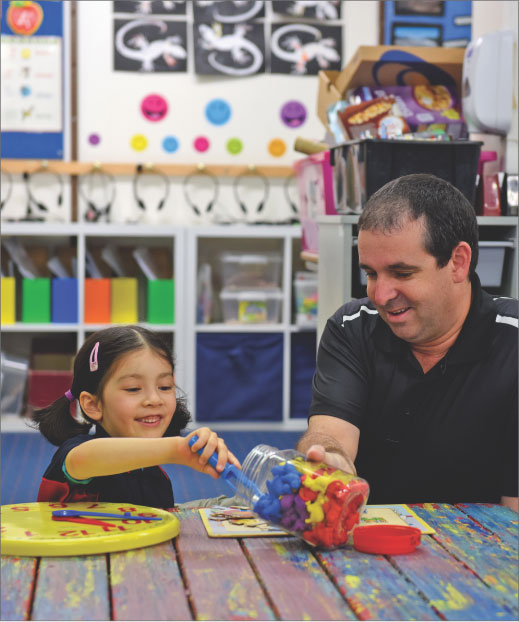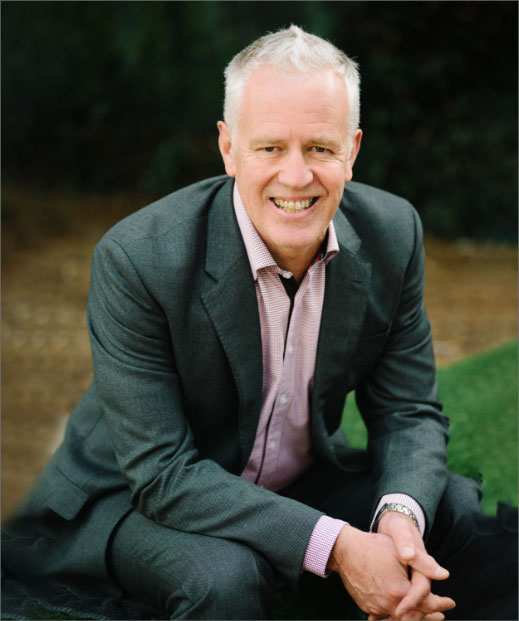Help your child achieve their best at school
Help your child achieve their best at school
It’s reassuring to know as a parent that your involvement in your child’s learning is one of the major contributors to their long-term success. Studies continually show that healthy relationships between families and schools and engagement of parents in learning are more significant to student success than household income levels or social status.
Here are some practical ideas to help your child become a successful learner and make the most of their potential.
Interact with your child
A great deal of a child’s learning is incidental. As a parent you have a wonderful opportunity to guide their learning through everyday situations. For instance, when your child is young you can develop their all-important language skills by talking to them, reading to them regularly and encouraging their efforts to talk, read and write.
In the primary school years, you can help your child learn simply by being close to them. When they hear you planning for school dress up day, your next holiday, or simply the evening meal they see organisational thinking first-hand, which they can put to good use when planning school assignments or projects. Want to give their maths a boost? Encourage them to assist you in meal preparation for some practical maths learning.
Secondary students, although more independent than their younger counterparts, benefit from parent coaching in real-world situations. Helping a young person apply for a part-time job, navigate friendship challenges or manage a busy after-school schedule provides valuable work and life lessons for this age group. Your active presence can be a fabulous source of learning and development for children and young people.
Help them understand their learning preferences
Children, like adults, have different learning preferences. Some prefer practical hands-on activities, some learn visually, while others rely on the written word. Help your child understand their learning strengths so they can put them to use.
Encourage a growth mindset
Help your child understand that their talent and smarts are not fixed. Their brains can always learn more, continue to grow and be stretched. Persistence rather than smarts may well be your child’s best learning asset.
Model lifelong learning
The most powerful way of promoting the value of learning to your child is to show yourself as a learner. Show your child that learning never stops.
Work with your child’s centre or school
Your child’s teachers are wonderful parenting allies. Just as with any worthwhile relationship you will need to work hard to maintain good working partnerships with your child’s teachers. At the start of the year meet with your child’s teachers with the goal of forming a respectful, professional relationship. Share your aspirations as well as helpful information about your child and your family with teachers.
Be mindful that despite best practices, things can go wrong in early learning programs and at school. Conflict between children can occur or misunderstandings between a child and teachers can take place. If you do need to contact a teacher then do so respectfully, calmly and through the right channels. A measured response will generally achieve the best result for your child.
Stay for the long haul
Children and young people learn at their own rates, so avoid using other children as benchmarks for your child’s learning. There are early maturers, steady-as-you-go kids and late bloomers in every class or group of children so it’s not helpful to compare your child to the progress of others. Look for your child’s continuous improvement and be mindful that academic improvement is not always steady and regular. There are frequent bumps along the learning road particularly during the transition from one school level to another or when a child moves from one development stage to the next.
Be a coach, not a critic
As a parent, you probably have high aspirations for your child, which naturally leads to frustration when these expectations aren’t met. At these times, keep in mind that patience is your best ally, and that your child will respond better to encouragement rather than criticism. Focus on your child’s effort, improvement and contribution to their class or group and the results will most likely take care of themselves. Some children, particularly first borns, learn better when relieved of the pressure to always do well.
As a parent you are a child’s first teacher, and that role doesn’t diminish when your child starts their formal education in an early learning centre or school. It’s complemented by the work of professionals with specialised subject knowledge who work extremely hard to bring out the best in your child. When teachers and parents work together the real learning magic occurs for your child. So go make some magic happen.
Michael Grose
Michael Grose is the founder of Parenting Ideas and is an expert in parenting education. For more than 20 years, Michael has been helping parents to raise confident, happy and resilient kids. He works closely with school communities across Australia, providing them with shareable parenting resources.








